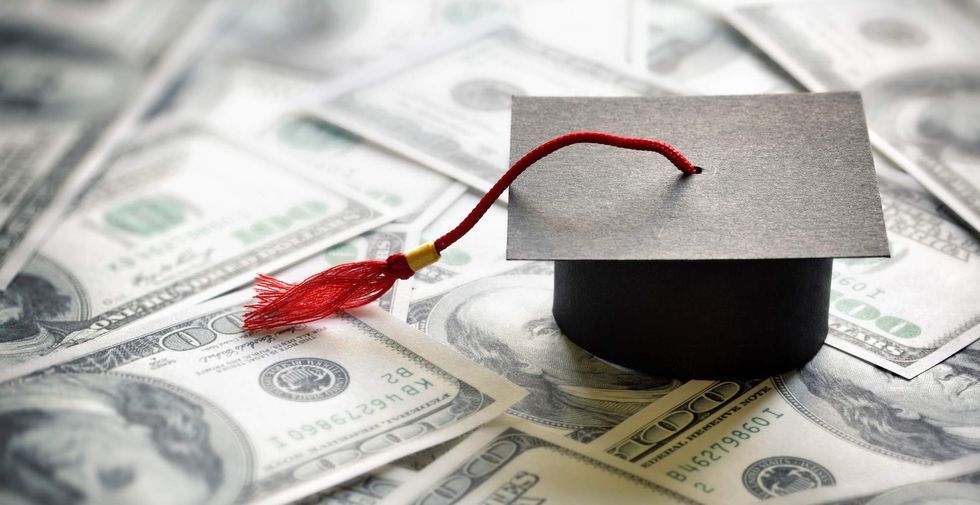
Getty Images

According to a new survey, almost half of all college students believe they won't be burdened with repaying student loans after they graduate. Spoiler alert: They will, unless Democrats — and some Republicans — are able pass a student loan forgiveness program.
According to a recent study by LendEDU, a private firm connecting students and their families with student loans and loan refinancing, 49.8 percent of the 500 current college students polled believe they will receive federal forgiveness for at least part of their loans after graduation.
"There is no doubt that getting a degree is helpful and may reap huge benefits. However, it concerns us here at LendEDU that students do not understand how they are funding their education," LendEDU's statement on the study read.
There are very few options students have to see their college loans forgiven in full. In order to get off the hook for their loans, the Department of Education says, loan borrowers can enter public service for a specific period of time, teach in an underserved area, die or become permanently disabled, according to the New York Post. The only other way for students to get their loans forgiven is if the school they were enrolled in shuts down while they're in attendance or within 120 days after they leave.
"With maybe 14 percent of the American workforce in a public service job," LendEDU co-founder Nate Matherson told the Post, "the actual numbers of those who may qualify for student loan forgiveness or discharge is maybe below 10 percent."
He added: "The fact that many students do not understand this means that they may be significantly underestimating the cost of financing a college education."
And, according to Mark Stephens, Pace University's financial aid director, it's pretty difficult to get your loans forgiven. He told the Post that Pace conducts between 25 and 30 financial aid workshops a year at high schools around the country and online.
"It’s not very realistic at all to expect loan forgiveness," Stephens said. "We try to tell students to understand your loan and manage your spending."
It is worth noting that students may be taking on more loans than they can manage because they believe the debt will be forgiven, at least partially. In fact, in October, President Donald Trump, who was then a candidate, proposed student loan forgiveness after 15 years, according to Time.
Trump proposed students pay 12.5 percent of their income toward paying down their student loans for 15 years. At that point, the balance would be forgiven. "The debt should not be an albatross around their necks for the rest of their lives, and that’s what it is," he said at the time. "We’re gonna work it out."
The LendEDU study also found that most college students rely heavily on their parents for loan information, despite the fact that parents don't always fully understand the loan process themselves. "It is concerning that current college students are underestimating the cost of student debt today and tomorrow," LendEDU noted.
Americans collectively owe around $1.3 trillion in student loan debt, spread out among roughly 44.2 million borrowers, Student Loan Hero reported earlier this month. And the average 2016 college graduate is saddled with $37,172 in student loan debt — up 6 percent from last year.
The student loan delinquency rate is 11 percent.
All of this follows a campaign promise of tuition-free college from Vermont Sen. Bernie Sanders (I), a former Democratic presidential candidate. During confirmation hearings for Education Secretary Betsy DeVos, the self-avowed socialist asked: "Will you work with me and others to make public colleges and universities tuition-free through federal and state efforts?"
DeVos, of course, did not favor such a proposal and quickly shot it down, though she admitted it's an "interesting idea."
"I think we also have to consider the fact that there’s nothing in life that is truly free — somebody is going to pay for it," she told Sanders, who responded, "Yes, you’re right, you’re right, somebody will pay for it, but that takes us to another issue."
At that point, Sanders shifted the conversation to taxes, arguing against lowering corporate taxes and taxes on high-income earners.